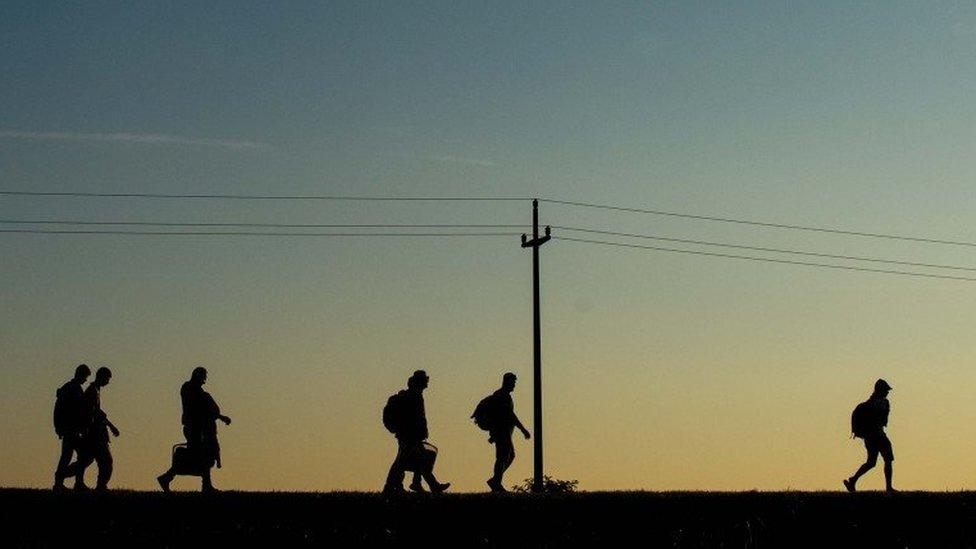Syrian refugees: 14 families and 20 children arrive in Northern Ireland
- Published
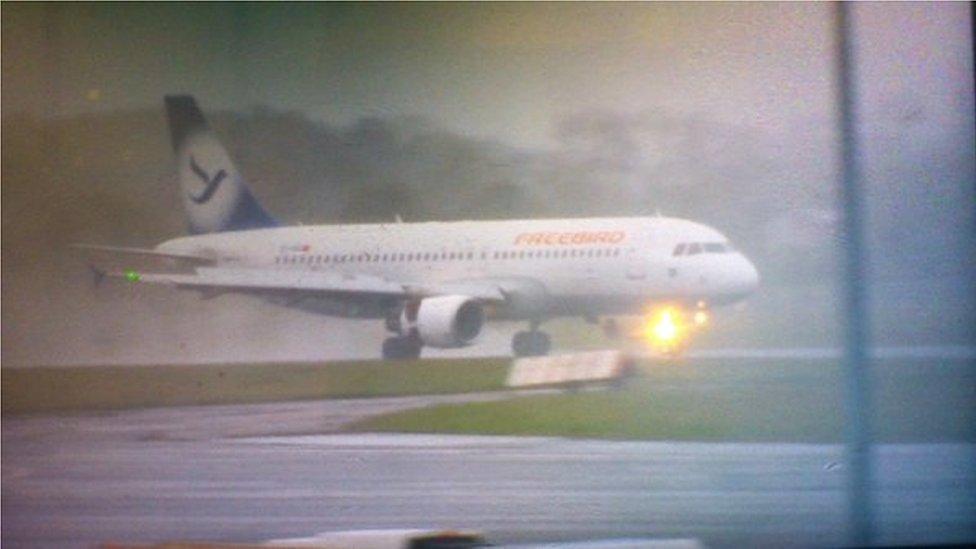
The group of refugees range in age from two years old to 57
A second group of Syrian refugees have arrived in Northern Ireland as part of the UK's Vulnerable Person's Relocation Scheme. , external
Fifty-seven refugees, including 14 families and 20 children, arrived in Belfast on Thursday morning.
The families will spend five days in a special welcome centre before moving into their new homes.
The first group of Syrian refugees arrived in Northern Ireland in December 2015.
The new arrivals range in age from two years old to their late 50s, and several of the adults are believed to have university-level education.

Vulnerable Persons Relocation Scheme
All of the "paperwork" is completed before the refugees arrive.
It prioritises women and children at risk, people in need of medical attention and survivors of torture and violence.
All refugees settled under the scheme have undergone a two-step security screening process.
People under the scheme will have access to housing, medical care and education, and they can work.
The Home Office will provide funding of at least £10,000 per refugee for the first year.
Refugees taken into the UK under the scheme will be granted five years' humanitarian protection, external which includes access to public funds, the labour market and the possibility of family reunion, external, if a person was separated from their partner or child when leaving their country.
After those five years they can apply to settle in the UK, external.

The Department of Social Development (DSD) has direct responsibility for overseeing the operation of bringing the refugees into Northern Ireland.
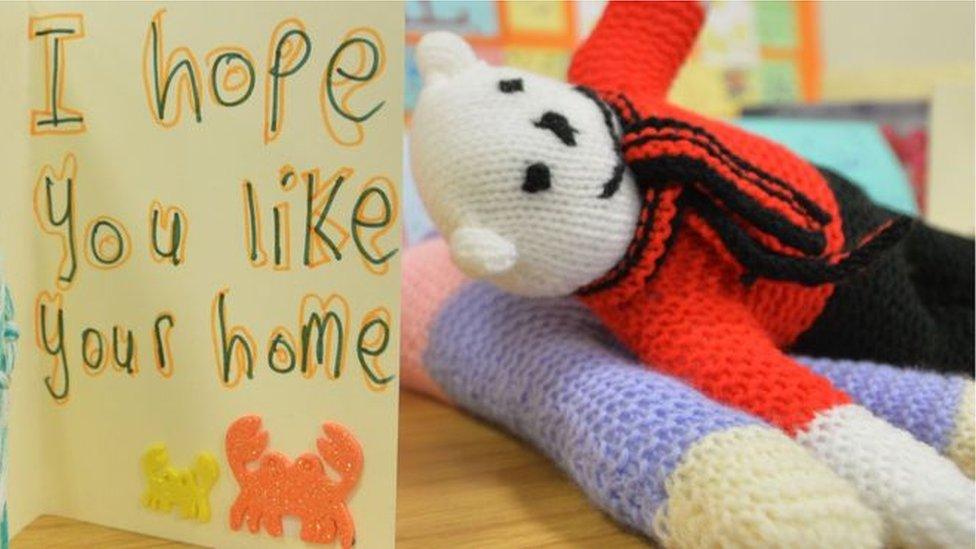
Pictures have been made welcoming the refugees to Belfast Welcome Centre
One of the families will be housed in Belfast, while the remainder will be resettled in Londonderry.
Senior church leaders in Derry have said the arrival of the refugees is an opportunity for compassion.
"I think we've really all been moved by the terrible destruction that's gone on in Syria and in the wider Middle East region," said Bishop of Derry Donal McKeown.
"I think it's in the heart of the Derry people to be generous and to be welcoming. I don't doubt they'll be made very welcome here in the city and will enrich the educational experience of the children that we have here."
Church of Ireland Bishop for Derry and Raphoe Ken Good said people will want to make a difference.
"These lives have been thrown upside down, the catastrophe that has befallen so many of these families," he said.
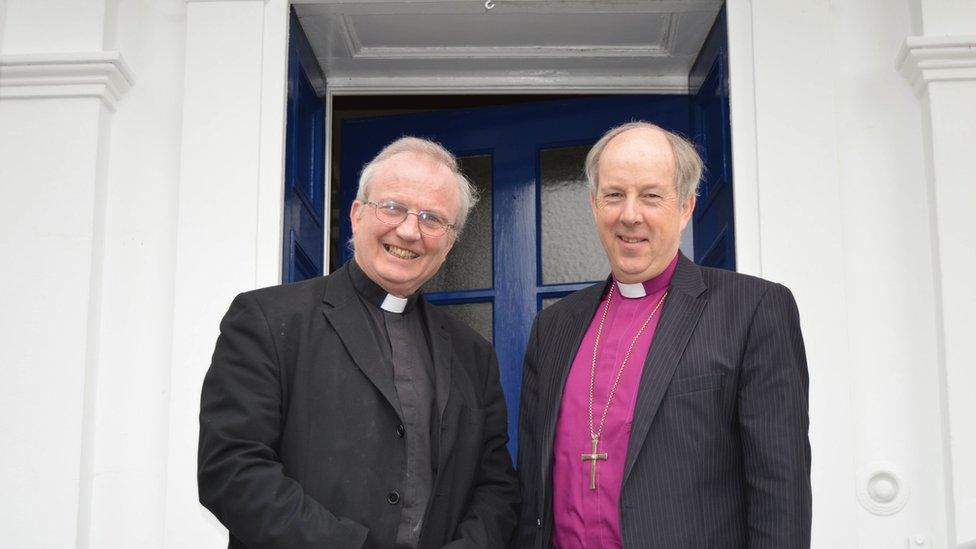
Both church leaders in Derry welcomed the refugees
"My vision is to look in 20 years time or so and that these children will say to us: 'We are so thankful that this city was the place we were sent, that this city welcomed us as they did, that this city turned our lives around and gave us a fresh start'."
The families will each be helped to find a home, a job and school places for their children.
The refugees are expected to live in Northern Ireland for five years, after which time they can choose whether to go back to Syria or apply for UK citizenship as long as they do not have a criminal record.
The families will be able to move freely across the UK, but will not be able to travel to the Republic of Ireland as laws regarding refugees in both jurisdictions are different.
Failure to adhere to this regulation could result in a criminal record.
It is understood that none of the first group of refugees to arrive in Northern Ireland have found employment.
- Published21 March 2016
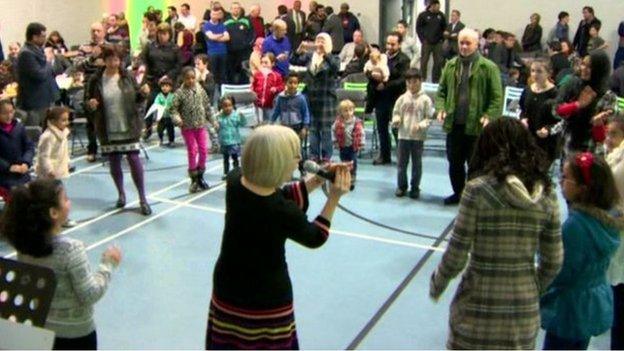
- Published17 November 2015
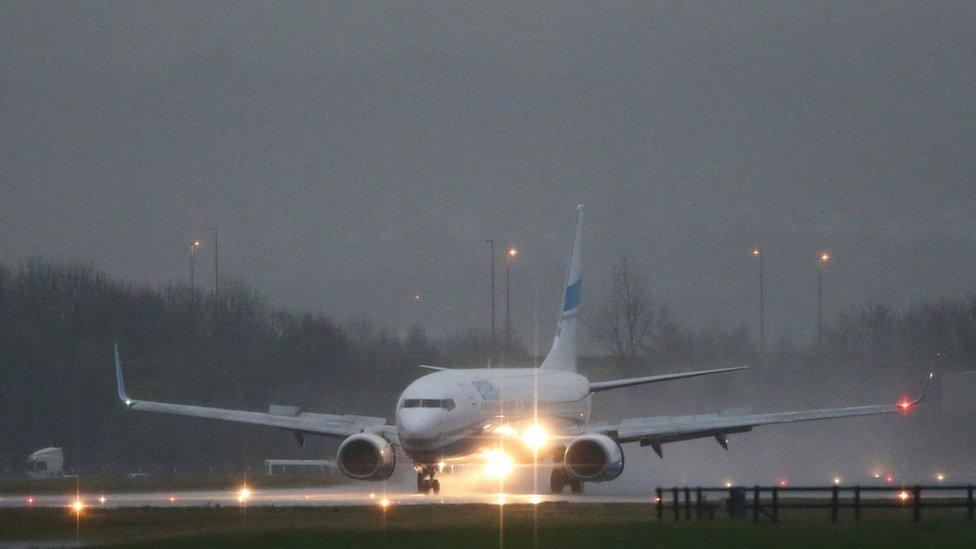
- Published27 November 2015
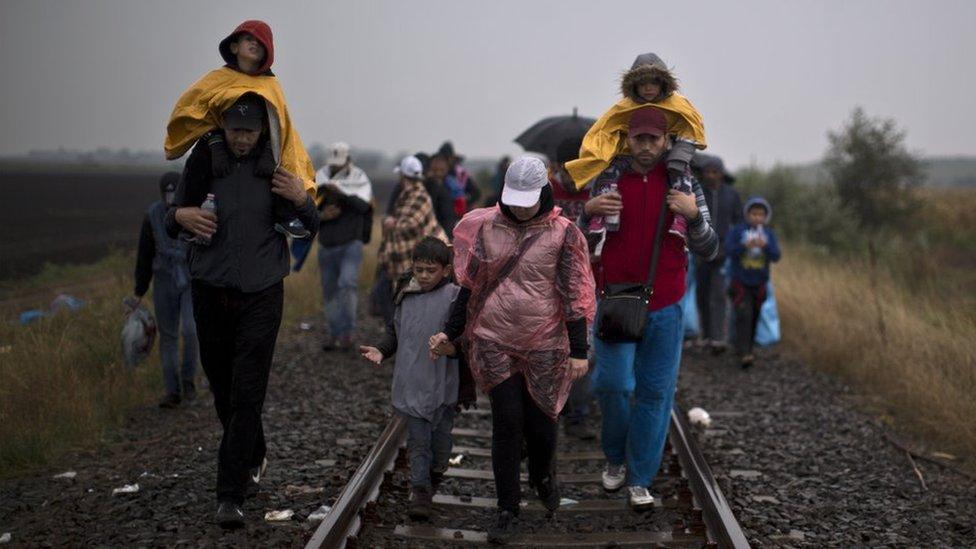
- Published15 December 2015
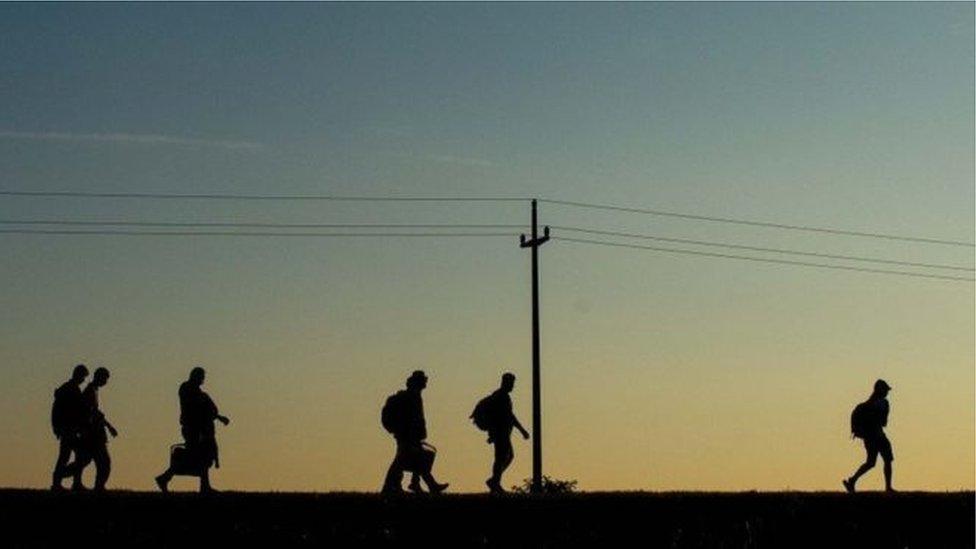
- Published15 December 2015

- Published14 December 2015
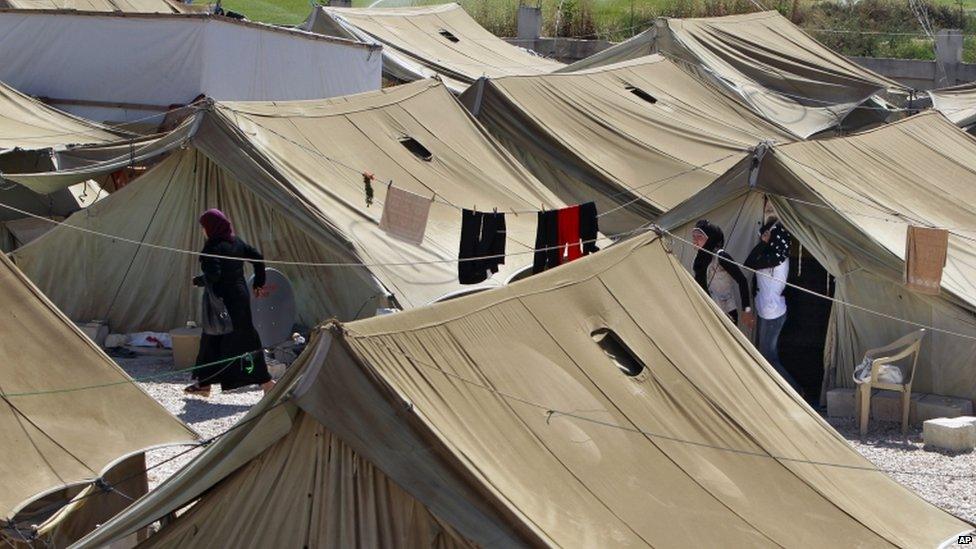
- Published3 December 2015

- Published19 October 2015
